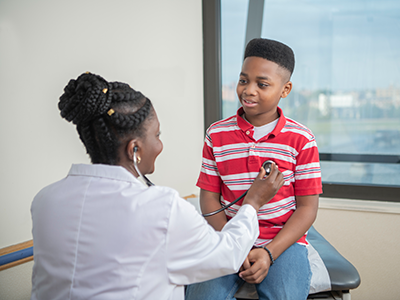July 17th, 2018 / 1 Comment
It’s been exciting to hear from parents, former patients and colleagues about the tips and guidance provided in my book Healing Children over the past year. After the strong response and interest the book received, a paperback version is now available.
As a pediatric surgeon for more than 30 years, and a father of two boys (now men!) I know that learning and improvement never stops. One rule that always holds true is that children are built to rebound and thrive. The key to accelerating their recovery from any injury or illness is to have active, engaged and informed parents in their corner.
Another good guiding principle is that the more you use experts and facilities that specialize in pediatric care, the better your child’s experience and outcome will be. Here are a few more things you can do or look for to become the best possible advocate for your child.
DO talk to your doctors often.
Ask your pediatrician questions like:
- What type of affiliation do you have with the closest children’s hospital?
- Can I put you in touch with my child’s surgeon?
- Will my child see the same doctor or nurse every time we visit your practice?
- Is anyone in your practice available in the middle of the night in case of an emergency?
If you’ve already engaged with, or are planning to see a pediatric specialist, ask her:
- Do you exclusively care for children?
- Do you have fellowship training and board certification in your pediatric specialty?
- For certain issues like concussions, broken bones, dental and behavioral and mental health needs, you’ll want to be absolutely certain your provider specializes in the care of children.
If surgery is needed you’ll want to know answers to these questions before proceeding:
- Is anesthesia provided exclusively by a pediatric anesthesiologist?
- Does the facility have dedicated pediatric nursing?
- Is a child life program (one that incorporates the needs of the whole child) available? Examples might include storytelling, art therapy and anything that sparks a welcoming interaction to bolster treatment, healing and recovery. This also makes it easier for doctors to insert IV’s or administer treatment.
DO study your health insurance plan.
Most families are beholden to the insurance plan offered by their employer. That said, you should still look for answers to these issues before an emergency happens:
- What does my insurance plan cover? Is my pediatrician in or out of network?
- Are other pediatric specialists – especially those in mental and behavioral health – covered?
- Is a pediatric specialty hospital in my network?
- Will transportation to the closest pediatric specialty center be covered in an emergency situation?
DON’T let your child’s health care team make all the decisions.
You don’t have to go to medical school to utilize your sixth sense. At top children’s hospitals, parents are considered active members of the care team and their input is encouraged. A few things you could do to be more involved include:
- Provide details and observations to the medical care team to assist with diagnosis and treatment.
- Communicate what nonverbal children, especially infants and toddlers, may feel or need.
- Share constructive feedback about your child’s care:
- Talk to your provider in person, on the phone or via email.
- Participate in hospital surveys.
- Share a positive or negative story, which can spark change across an entire organization.
DO know where to turn from birth to early adulthood.
These are a few organizations that Children’s National works closely with, but I encourage you to do your own independent research and gather resources from friends and family.
- To learn about injury prevention: Safe Kids Worldwide
- For help finding a children’s hospital: Children’s Hospital Association
- To learn about pediatric health care and pediatric specialists: American Academy of Pediatrics
- To learn more about pediatric surgery: American Pediatric Surgery Association
- To research hospital ratings and accreditations:
- Hospital safety ratings: Leapfrog
- Excellence in patient care: Magnet Status
- Best children’s hospitals national rankings: U.S. News & World Report
DON’T wait until an emergency occurs to get to know your local children’s hospital.
- Schedule a visit when your children are healthy. Determine how to get there and where to park, prior to an emergency. To expedite care and familiarize yourself with emergency resources, meet with the nurse navigators, family advocates and child life specialists at the hospital.
- Visit the hospital’s website in advance to understand the resources they provide, the areas they specialize in and other services they provide.
Ultimately, keeping your kids safe and healthy is a process that every parent or guardian needs to establish for themselves. My hope is that the advice and personal experiences I describe in Healing Children provide a roadmap for ensuring every child grows up stronger.



 Kurt Newman, MD, was President and Chief Executive Officer of Children's National.
Kurt Newman, MD, was President and Chief Executive Officer of Children's National.



















Wow, this article has a lot of good resources for childcare, and I actually hadn’t thought of checking to see if the hospitals in my area have websites we can look at. We just moved to Michigan, so it sounds like checking for websites will be a good way for us to figure out what our local options are for if my daughter needs a children’s hospital. It’s never too soon to look for good emergency healthcare facilities when your daughter is getting into those wild middle-school years!
https://www.portcitypediatrics.com/medical-services